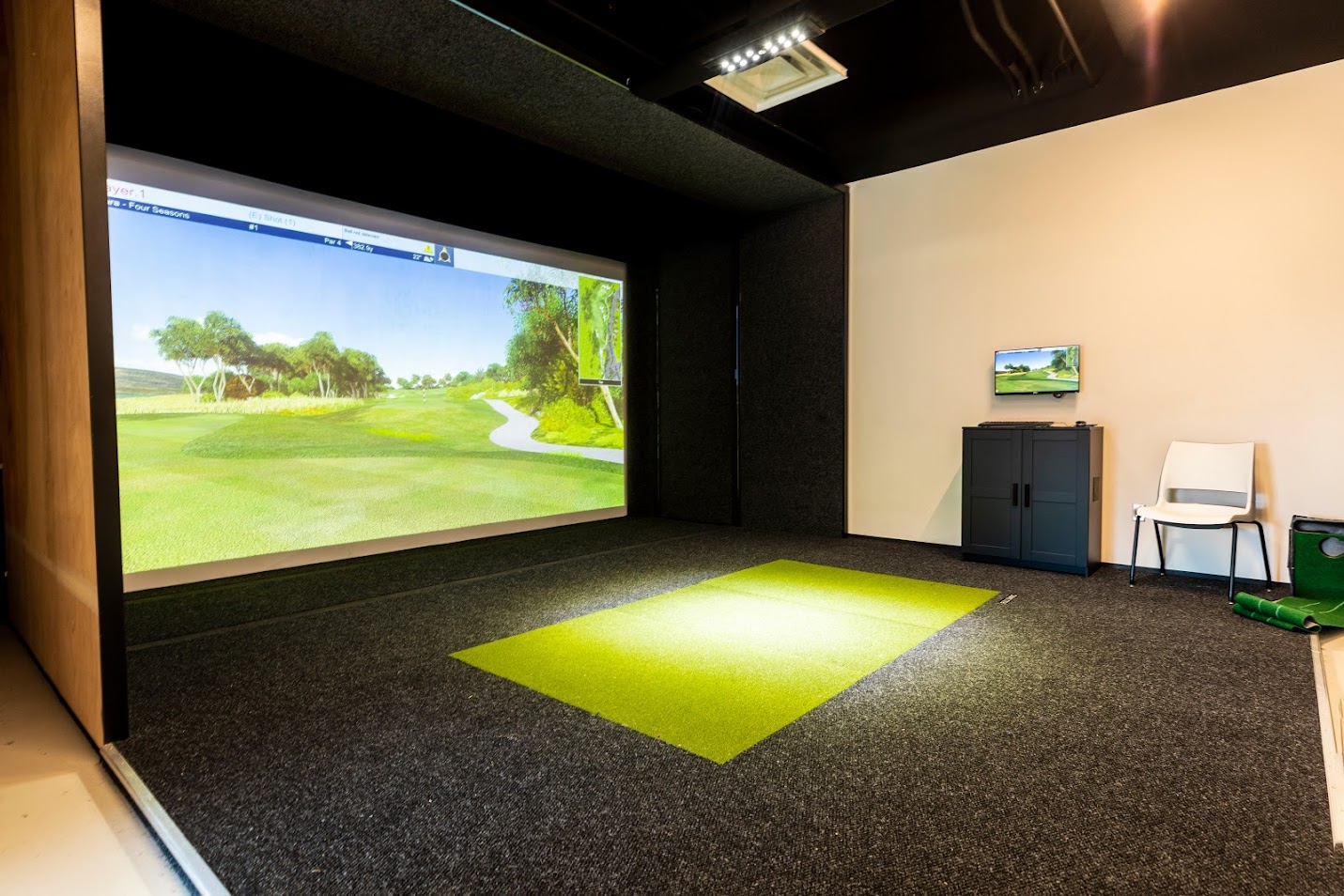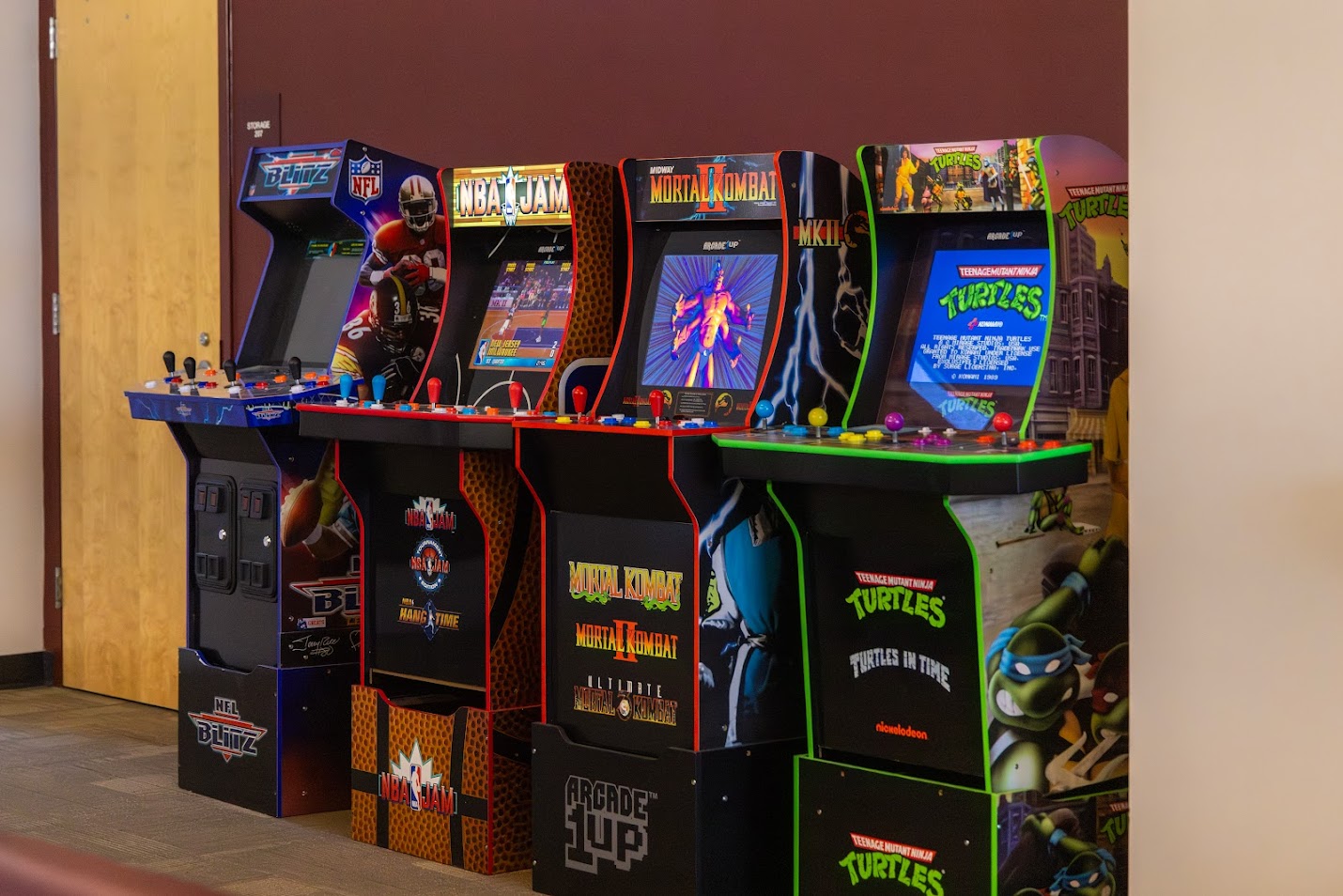Campus recreation centers are striving to find unique ways to keep all students active and engaged — whether it’s through virtual fitness or gaming competitions.
From immersive sports simulators to virtual gaming, campus recreation departments are expanding beyond traditional fitness to offer students more ways to stay active and engaged. These non-traditional programs are helping centers connect with students who may not gravitate toward intramural sports or group fitness classes but still want to compete and have fun.
At Eastern Kentucky University (EKU), students can tee off year-round using Full Swing Golf Simulators located in the campus esports lounge. With over 45 golf courses and real-time data analysis, the simulator delivers a realistic indoor golfing experience — no matter the weather.
Jacob Stevenson, the coordinator of Facilities and Operations at EKU, said with their large golfing community, they were determined to have a simulator in their campus rec center. With Eastern Kentucky’s unpredictable weather, he said the simulators allow students to play and practice anytime.
The simulators aren’t just for casual recreation. EKU’s Professional Golf Management program also uses the technology for training and skill development. By tracking data like ball speed, club path and launch angle, students get immediate feedback on their swing and see exactly where the ball would land if they were outdoors.

In addition to golf, the Full Swing simulators feature more than a dozen other activities, including football, lacrosse, zombie dodgeball and carnival games. Stevenson said the games are especially popular during youth camps, while students and faculty tend to favor the golf function.
The esports lounge at EKU goes far beyond the simulators. It includes MetaQuest 3, a virtual reality gaming system, active video games like Just Dance on the Nintendo Switch and a variety of PC games powered by Alienware Aurora R8 computers.
A similar experience is available at the University of Wisconsin–Madison (UWM), where the new Bakke Recreation and Well-Being Center features both a Full Swing multisport simulator and a growing esports lounge.
Abby Van Note, the associate director of Programs at UWM, said student interest was the driving force behind adding these non-traditional offerings.
“Both our campus and larger community have seen a growth in more non-traditional fitness,” she said. “In our first year of the esports room being open, we saw 4% of the campus community use the space. Most of them were repeat users.”
UWM’s esports lounge features 12 computers with more than 40 games managed by ggLeap software, giving students the chance to try new activities and connect with others.
Both campuses report strong and growing interest in non-traditional recreation, especially as students look for more inclusive and varied ways to stay active. Future plans include expanding exercise gaming and introducing more structured programming.
Van Note noted UWM is exploring how to balance open recreation with scheduled programs to support both casual and competitive users. At EKU, Stevenson said they’re evaluating new game titles and ways to keep the experience fresh.
For campus rec professionals looking to explore similar offerings, Stevenson emphasized one key takeaway: know your students.
Every student is different, which is why it’s vital to understand your audience. The more options offered, the more likely everyone can find something that engages them. By embracing non-traditional fitness, rec centers are creating spaces where every student — whether a gamer or a golfer — can feel like they belong.











